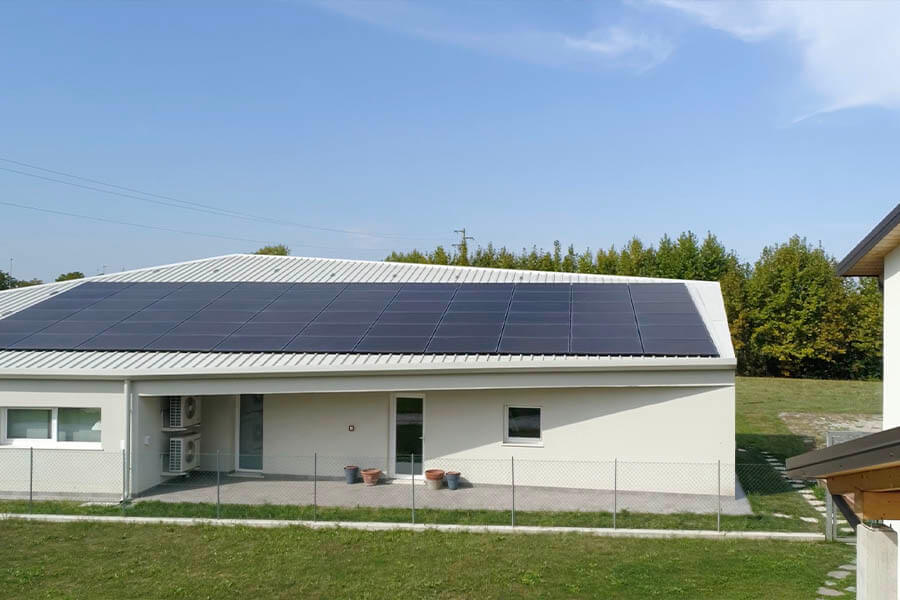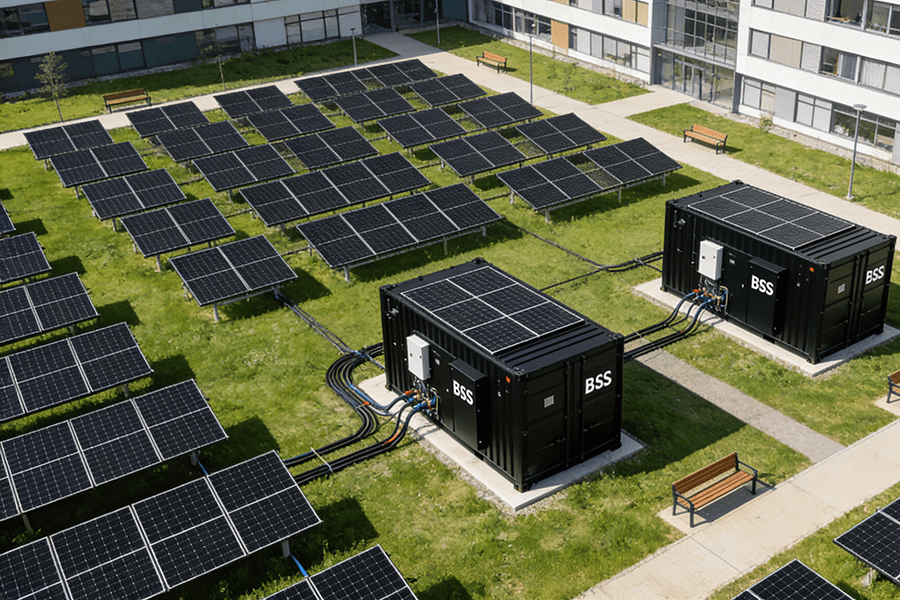How many solar panels for 1500 kWh per Month?This is a common question for households and small-scale solar energy users planning to adopt renewable solutions. To generate this amount of electricity, you would typically require around 20 to 28 solar panels rated between 410W and 500W, assuming an average of 4 peak sunlight hours per day. Below, we explain the details of calculating panel requirements and discuss the factors influencing system design, particularly for residential applications.

Understanding 1500 kWh Per Month: What Does It Mean?
Monthly Energy Needs
Generating 1500 kWh per month means producing an average of 50 kWh per day. This level of energy could:
- Power a small household with moderate energy usage.
- Serve as supplemental energy for a grid-connected home.
- Provide energy for off-grid cabins or vacation properties with consistent sunlight access.
Solar System Components
To meet this energy demand, the solar system will include:
- Solar Panels: Converting sunlight into electricity.
- Inverters: Transforming DC power from the panels into AC power for use.
- Optional Battery Storage: Useful for hybrid or off-grid systems to store excess energy.
Calculating the Number of Solar Panels for 1500 kWh Monthly (28 Panels)
The number of panels required depends on several factors:
- Panel Power Rating: Smaller systems often use panels rated between 410W and 500W, which balance performance and cost.
- Sunlight Hours: Local conditions determine the average daily sunlight available for electricity generation. For this calculation, we assume 4 peak sunlight hours per day.
- System Losses: Efficiency losses (10-15%) from inverters, wiring, and shading.
Formula
To calculate the total system size:
- Daily Energy Demand (kWh) = Monthly Energy Demand (kWh) / 30 days
- System Size (kW) = Daily Energy Demand (kWh) / Peak Sunlight Hours (hours)
Assuming 4 sunlight hours per day:
- Daily Energy Demand = 1500 kWh / 30 = 50 kWh per day
- System Size = 50 kWh / 4 hours = 12.5 kW
Determining Panel Count
- Number of Panels = Total System Size (kW) × 1000 / Panel Power Rating (W)
- Number of Panels (Using 450W)= 12,500 W / 450 W = 28 panels
Focus on Residential Systems
Unlike large-scale systems designed for daily energy needs exceeding 1500 kWh (e.g., industrial or multi-family applications, as discussed in our previous article), monthly energy production of 1500 kWh typically fits within the scope of residential systems. These systems prioritize:
- Smaller Panel Count: Due to space constraints on rooftops.
- Cost-Effective Panel Choices: Panels rated between 410W and 500W are ideal for residential setups, balancing efficiency and affordability.
- Ease of Integration: Simplified designs compatible with grid-tied or hybrid configurations.
System Type Considerations
Grid-Tied Systems (20-24 Panels)
Features
- Directly connected to the local grid, with the grid serving as backup power.
- No need for battery storage, minimizing costs.
- Ideal for maximizing financial savings through net metering.
Panel Count
- For 1500 kWh per month:
20 to 24 panels rated at 410W-500W would typically suffice, depending on sunlight availability.
Hybrid Systems (24-28 Panels)
Features
- Combines solar panels, battery storage, and grid connectivity.
- Offers energy independence while utilizing grid backup as needed.
- Supports self-consumption and peak shaving.
Panel Count
- Hybrid systems often require slightly more panels to accommodate energy storage needs. For 1500 kWh per month:
24 to 28 panels rated at 410W-500W are common.
Factors Affecting Solar Panel Numbers
Sunlight Availability
In Europe, average peak sunlight hours vary:
- Northern Europe (e.g., Germany): 3-4 hours.
- Southern Europe (e.g., Spain): 5-6 hours.
Fewer sunlight hours require larger systems to meet the same energy demand.
Efficiency Losses
- Inverter Losses: Typically 5-10% during DC to AC conversion.
- Panel Efficiency: Higher-efficiency panels reduce overall system size.
- Weather & Shading: Impact daily performance and may necessitate additional panels.
Energy Goals
- Cost Optimization: Grid-tied systems prioritize minimal upfront costs.
- Energy Independence: Hybrid systems may require more panels for reliability.
Final Thoughts
For a system designed to generate 1500 kWh monthly, you will typically need 20 to 28 solar panels rated between 410W and 500W, assuming an average of 4 peak sunlight hours per day. Grid-tied systems often suffice for residential users, while hybrid setups offer additional flexibility and independence.
At Maxbo, we make the transition to solar seamless by providing customized, efficient solutions for your specific needs. Contact us today to bring renewable energy to your home effortlessly.
Why Choose Maxbo?
At Maxbo, we specialize in one-stop solar solutions tailored to residential energy needs. Our offerings include:
- High-efficiency panels (410W-500W) optimized for small to medium systems.
- Custom configurations to fit your rooftop and energy goals.
- Compliance with local regulations and incentives across Europe.
Learn more about our solar solutions and take the next step toward energy independence.
Website: www.maxbo-solar.com
Email: [email protected]
Solar System Price for Home Solar System Price for Home Solar System Price for Home Solar System Price for Home Solar System Price for Home Solar System Price for Home Solar System Price for Home Solar System Price for Home Solar System Price for Hom
Solar System Price for Home Solar System Price for Home Solar System Price for Home Solar System Price for Home Solar System Price for Home Solar System Price for Home Solar System Price for Home Solar System Price for Home






